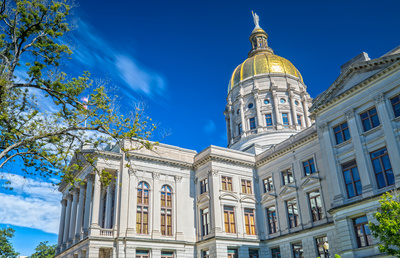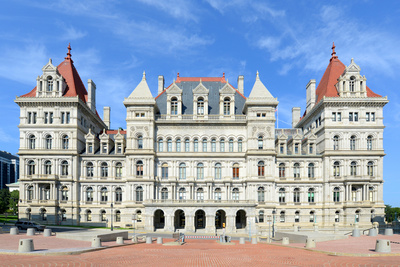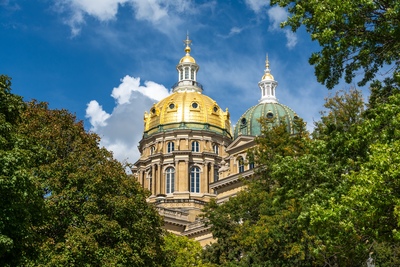Last Thursday the Illinois House voted to
override Governor Bruce Rauner's (R) veto of its budget bill (
IL SB 9), ending the state's 736 day budget stalemate. While the vote takes the pressure off Illinois' fiscal difficulties for the moment, the state still faces significant challenges moving forward.
The new budget doesn't fix Illinois' root problems
The first thing to note is that the new Illinois budget will likely prove to be an insufficient solution to the state's structural fiscal problems. While the final plan cuts spending by $2.5 billion and increases the corporate and personal income tax rates (to 7 percent and 4.95 percent, respectively), this will not be enough to cover the
billions owed in past due bills and ballooning pension obligations. Closing this chasm will require significant reforms to where and how Illinois spends money and, so far, at least, lawmakers have shown no willingness to tackle those issues.
Furthermore, we know that the newly hiked income tax rates will not fix the problem because the state has gone down this path already. In 2011,
the state instituted a temporary tax hike that is nearly identical to the one that lawmakers approved last week (the corporate income tax rates are the same, but the previous temporary hike set the personal rate at 5 percent). The higher temporary rates did not prove to be the
silver bullet that advocates had hoped: when those tax cuts expired in 2015, the state's finances were still in dire shape. After two years without a budget, Illinois' fiscal problems have only mounted, meaning that the revenues from this tax hike could prove to be the same drops in an even larger bucket.
The final push to approve the budget came when ratings agencies threatened to downgrade the state's bond rating to junk status, but in light of these economic realities Moody's is considering whether to move forward with a downgrade anyway.
If lawmakers want to get their ship of state in order — or if they are forced to do so — further cuts or revenues will be required. Given that this year's 32 percent tax hike will likely make future income tax increases unpalatable, it will be interesting to see what kinds of tax reforms lawmakers might pursue.
The politics are going to get more complicated
Fiscal issues aside, this new budget may ultimately intensify the state's partisan gridlock, rather than ease it. Ten House members and one GOP senator
crossed the aisle to override the governor's veto, but this override vote saw an overall loss of Republican support as compared to the passage of the budget itself, which passed with 16 votes from that party.
Media reports indicate that those members who flipped were under considerable pressure from both constituents and the governor's office to vote against the override. These lawmakers will face a lot of heat in the coming elections and the governor has all but guaranteed that they will face primary challenges.
It's unquestionable that this budget will be the marquee issue of the state's next election cycle. Governor Rauner will run in opposition to a tax hike pushed by Chicago insiders that didn't do enough to solve the state's spending problems. Democrats will say that they rallied a bipartisan coalition to save the state in the face of an intransigent governor, but they also know that their efforts can easily be spun into campaign ads attacking them for raising taxes again.
Speaker Madigan (D) seemed to have spent much of the past two years hoping to stall budget negotiations until a Democratic governor comes into office, but by passing this budget there is
some thought that he's made it more likely that his longtime political adversary will remain in the governor's mansion.




